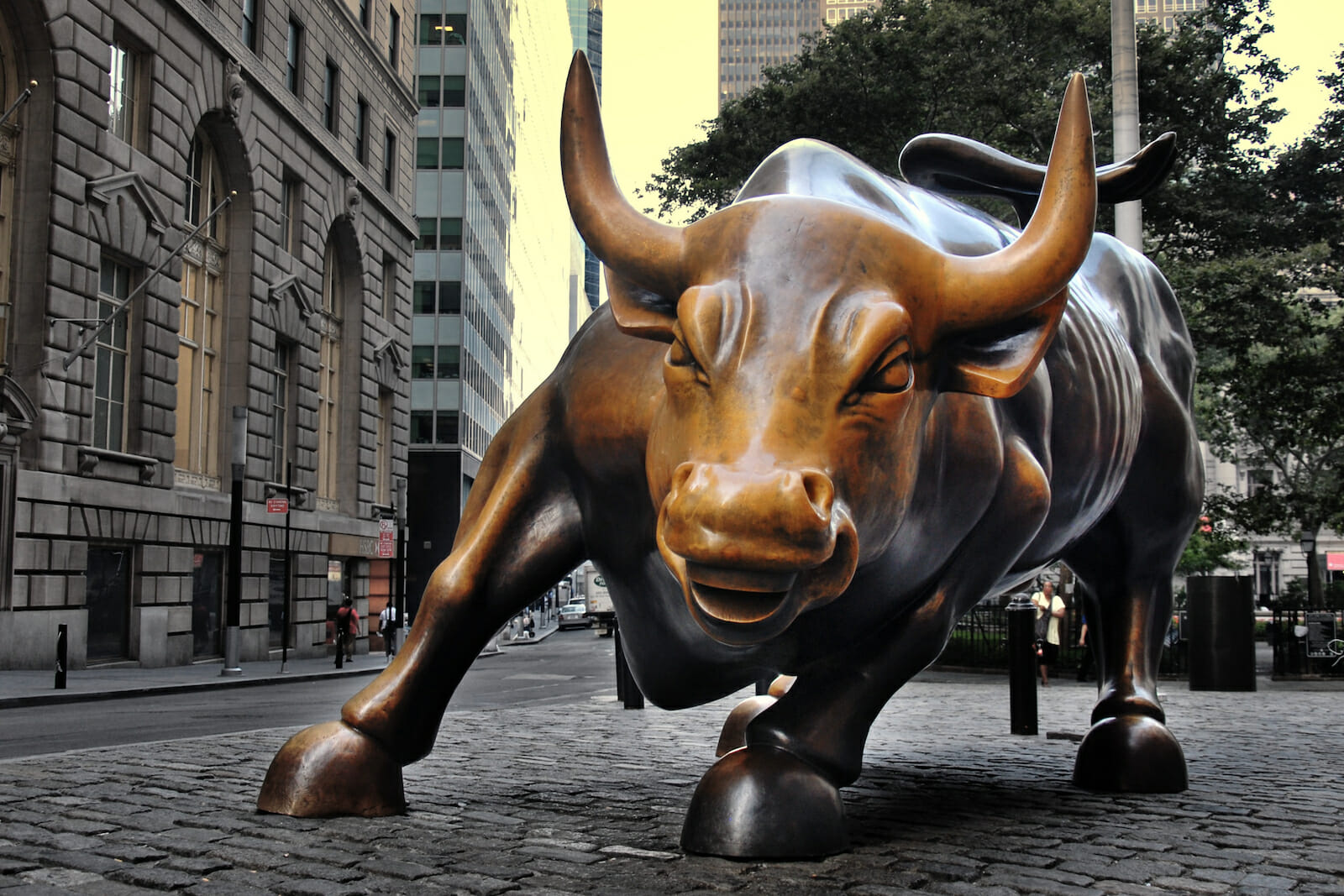
Is Capitalism Failing Us or Are We Failing Capitalism?
Capitalism is a word that has been much abused. It is an abstract noun formed from the word “capital.” What is capital? First of all, it is something that belongs to the human world. Capital pertains to economic activity and the creation of value. It is everything that we use in appropriating nature for our use. Capital can be buildings, machines, tools, money; but it can also be knowledge, skills, and technologies. As an abstract term created from the word capital, capitalism indicates a preoccupation with the creation of wealth and capital growth.
Misappropriations have extended this meaning well beyond its boundaries. It has been stretched to include concepts and notions that were borrowed from spheres and fields very distant from economics: ethics, philosophy, social and political theories, biology, and much, much else. When people use the word “capitalism” today, they may imply things that are very different from each other. For some, capitalism may mean markets and their capacity for self-organization and regulation. For others, it may mean a rapacious individualism that leads to inequality and domination. For still others, it may imply an attitude that seeks to submit nature and sacrifice it for the sake of human greed. Conversely, if we accept the notion that the primary meaning of capitalism has to do with capital and its growth, we may find that capitalism is relevant to sociopolitical systems that have rejected and even condemned capitalism. Socialist Russia, for example, was just as preoccupied with economic progress and capital growth as capitalist America. The communist government of China also uses capitalist practices to advance their country. Yet despite these facts, the view of capitalism as an exclusively Western phenomenon still prevails.
Until recently capitalism has usually carried a positive connotation at least in Western public discourse, so much so that at the end of the last century capitalism was proclaimed as the only viable model for economic development. That was the case until a few years ago. Today, some progressive liberals on the left openly challenge the view of capitalism as a superior economic system. They blame the constant capitalist chase of profits and the rapacious capitalist competition for the continued existence of poverty, inequality, the degradation of the environment and many other contemporary problems. They even made the word socialism an acceptable term in our current discourse—something few of us could imagine a decade ago.
Critics of capitalism do not come exclusively from the left. Many respectable economists, politicians, and public figures invoke socialism, albeit in some democratic form, as a solution to our current ills. Indeed, it would be an exaggeration to suggest that socialism is in; it certainly is not. However, capitalism appears to be on the way out. Even moderates question the viability of capitalism and advocate the creation of a new economic model that, for the lack of a better term, they call “post-capitalist.” Articles that critique capitalism and call for new approaches to replace it appear in many liberal publications. The view that capitalism may be failing us has gained currency even in circles that include the corporate environment and business leaders, and that we do not usually associate with radicalism.
One recent contribution of this kind appeared in the prestigious online magazine Project Syndicate, a liberal publication devoted to political and economic matters. The author of this contribution is Yanis Varoufakis, a Greek economist who served at one point as minister of finance in the Greek government. The title of Varoufakis’s article “Stagnant Capitalism” succinctly articulates his main thesis. Varoufakis argues that capitalism has a natural tendency toward stagnation. There is no need to go into the details of the argument. Suffice it to say, it is not ideological. Varoufakis argues that capitalism requires interest rates that can balance, on one hand, savings and investments, and on the other, the supply and the demand for labor. He concludes that creating such conditions results in a paradox: in order to sustain these balances, the interest rates must be negative, which will ruin banks and pension funds. Hence stagnation with minimal positive interest rates becomes the only viable option.
To translate Varoufakis’s contention into more general terms, one can say that he argues that market capitalism, as a system, tends toward entropy—the term used in physics and other disciplines (including economics) that designates stasis. The argument does not come as a surprise. All systems in nature produce entropy, which means that they exhaust their resources, mainly free energy available to perform work. These resources are necessarily limited and, therefore, are bound to eventually decline and disappear.
Such a grim prognosis actually works only for closed systems—that is, systems that have no reliable access to new resources. However, gaining access to new resources can offset the negative implications of inexorable entropy production. In order to gain access to new resources, systems must create new and more powerful levels of organization, which involves acquiring new properties and opening new possibilities that are different from those already available to the system. In other words, systems can avoid entropy, or stagnation, by including differences and evolving.
We can see numerous examples of such creations in the evolution of our universe. Systems combine together, include each other’s differences, create new and more powerful levels of organization, gain access to new resources, evolve, and thus conserve themselves. We are an excellent example of this evolution. Our mind is capable of creating an infinite number of new and more powerful levels of organization that provide access to new resources and give rise to new ideas, technologies, approaches, and solutions.
Entropy does not hinder the evolution. On the contrary, it facilitates this process. Equalization of energy levels makes inclusion possible. Indeed, the law of entropy says that entropy production can never be less than zero, but there is nothing in this law that prohibits maintaining entropy production at a zero level.
Economies and markets are also dissipative systems and, as such, they deplete resources available to them. However, if these systems create new and more powerful levels of organization, they can gain access to new resources and avoid the depletion of resources. They will conserve themselves by evolving and becoming more powerful; that is, they conserve themselves through economic growth.
Human creativity, our capacity to create is the most important economic resource. New ideas, solutions, approaches provide access to new resources and thus stimulate growth. The more radical a new idea is, the greater the resources it can make accessible, the more possibilities it will offer, and consequently, the greater the economic growth will be. Therefore, in order to increase capital and achieve economic growth, we need to use human capacity to create to the fullest extent possible. Unlike other resources, human creativity does not depreciate. On the contrary, it appreciates when used; the more we use it, the more it appreciates. Thus, not only the full utilization of human creativity can achieve economic growth; it can achieve economic growth that is exponential.
Capitalism is about increasing capital. There is nothing in this goal that can make us a failure, nothing that can deny us success. If capitalism cannot be failing us, we must be failing capitalism by not using efficiently the resources available to us, and particularly our most important resource—human capacity to create. We can make capitalism succeed by using human capacity to create to the fullest extent possible. In order to achieve this level of efficiency, we should make the process of creation the main principle for organizing our economic practice; and the inclusion of difference is the most important condition that makes creation possible.
Currently, we have two basic models of economic development. One is Western capitalism and the other is socialism or communism. The former model emphasizes competition as the most important factor for stimulating production. Socialism, on the other hand, emphasizes cooperation and common interests as impetus for development.
Competition is about winning. Competitors seek to defeat their opponents and establish their domination, and domination excludes and suppresses difference. Thus competition precludes the inclusion of difference. The socialist approach that emphasizes cooperation generally focuses on achieving some goal that is defined in terms of interests of society as a whole. In other words, socialism emphasizes commonality. The emphasis on commonalities has to look past individual differences. Thus the socialist approach has to downplay or even suppress individual differences in favor of interests of society as a whole.
Thus both our current models of economic development, albeit for different reasons, do not embrace inclusion of differences as its main principle and even allow the suppression of differences. Therefore, none of these models really fosters the process of creation. This is not to say that acts of creation do not occur either under capitalism or under socialism. They most certainly do, but they occur contrary to the existing system, not because of it. Current economic practices do not enhance the process of creation. In fact, they tend to stifle it and, as a result, they have a tendency toward periods of long stagnation interrupted by brief periods of innovation, or what Stephen Jay Gould and Niles Eldredge called “punctuated equilibrium.”
There are several conclusions that follow from the preceding discussion. The pessimistic assessment of capitalism that we increasingly encounter today indicates that these assessments do not really grasp what capitalism is all about. There is no justification for identifying capitalism with a particular economic practice. Capitalism is a self-conscious pursuit of capital growth and economic development. Historically, we came to identify it with individualism and competition—an identification that is totally unwarranted.
Capitalism encourages and mobilizes us to pursue economic growth and to do what needs to be done in order to achieve this growth—nothing more and nothing less. It does not tell us that we should sacrifice our environment for the sake of growth; it does not tell us that inequality and poverty are inevitable and necessary—no, capitalism does not presuppose any of that. All capitalism tells us is that the economy must grow and wealth must increase. That is all. Capitalism leaves up to us to make it happen. Capitalism can never fail us. It exhorts us to transcend our limits, to be creative and innovative. It challenges us. We cannot fail if we respond to these challenges; we will fail only if we do not respond to them.

